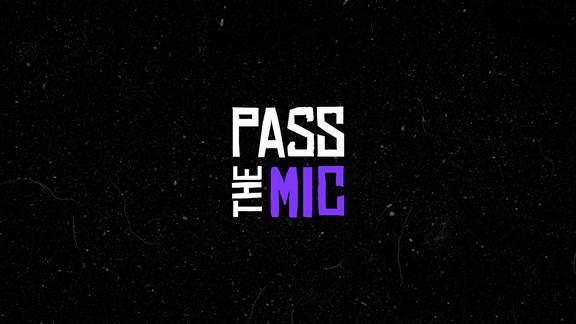On Tuesday, we #PasstheMic to those with enriching perspectives to share their views and goals. Today, Gus Nwanya, Associate Creative Director at Kin + Carta Pollen shares his lived experiences and learnings with us.

Pass the Mic
I have an extremely talented friend who is an amazing street photographer. She's great at capturing the nuances and expressions of people as they go about their everyday lives. She’s able to go places and stand in locations and go almost totally unnoticed. I think her success lies in the fact that she’s able to draw very little attention to herself when trying to capture those special candid and magical moments.
I, on the other hand, almost never go unnoticed as a photographer myself. I can rarely capture such an image - those fleeting gestures or laugh out loud moments, without an awareness of my presence, and my skin colour. The list goes on; people crossing to the other side of the street or stopping until I walk past, security awareness when I’m in a public space, being asked to move along from locations, denied entry to public spaces, and approached by police with questions like - what am I doing? What permissions do I have? And on rare occasions: where have I got that camera equipment from?
Why? You see, my friend is white, and I am black. I would challenge anyone that doesn’t believe this has a significant impact in how we are perceived and treated, and advise them to go to Specsavers.
Whilst on the streets I have eyes and cameras always on the look out for me, but even after 20 years in the advertising industry, the opposite applies. In the corporate world I often go ignored, invisible even. Being the only black guy in the room, and having worn many hats as a creative in advertising, ignorance was something I got used to and felt very often. Ignorance of my skin colour, what value I had to offer, my capabilities and my opinion. I have learnt many lessons in my field, but the first lesson I learnt very quickly, was to leave my blackness at the door. Don’t dress too black, don’t talk too black, get used to being ignored, looked past, or feel marginalised. And never, never talk about race in case you made your workmates feel uncomfortable.
For me to climb the career ladder I had to conform. It's the price of admission. Having to feign interest into going to the pub after hours, showing excitement for Rugby nations games, or having heated discussions on the musical geniuses of 90s bands like Pulp or Oasis. Yet no matter how well I tried to blend in, I saw myself passed over time and time again for leadership roles by my white colleagues. I got tired of the often racist intricacies that I’d often face on pitches or general banter around the office, seeing the lack of black and diverse faces in Adweek or Campaign of people in leadership roles. So I left the agency life and became a freelance creative.
In the 10 years that followed as a freelancer, I was mentally able to separate myself from having to redefine my blackness to new colleagues. I no longer had to go out of my way to garner favour for that career opportunity, and I didn’t care if I went ignored. I owed no affinity. I was a black man working as a freelance creative in an industry that didn't really cater to me, whether through the office environment or in advertisement. I was pretty successful at it. This did not mean that I found acceptance or respect, but it did mean that I answered to no one but myself, and importantly did not have to conform.
Last year I made a big decision to go back into agency fold and am now working for the most diverse agency I have ever worked for. I have creative leads who I have the utmost respect for. And are more open about race relations and the inequality of the workspace. I’m not going to give a spiel about how things are looking up, and it's all getting better - I would be lying if I did. However, I now feel like I’m in a place where I don’t have to conform to be accepted, and if me being black makes someone uncomfortable, then it's a conversation that I’m comfortable having.